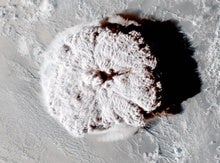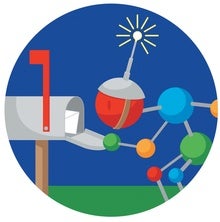 |
| March 22, 2022 |
Dear Reader,
This month, researchers published a review of nearly 200 studies on "digital repression," which refers to different kinds of practices that use digital tools to crush dissent both online and offline. At the same time, in Russia, President Vladimir Putin’s regime is putting many of those tools to use. I spoke with a digital repression researcher about this type of control, and how it is intensifying in Russia as that nation attempts to stamp out criticism of its invasion of Ukraine. |
| | Sophie Bushwick, Associate Editor, Technology | |
 |
| |
| |
| |
| |
| |
| |
| |
| |
| |
| |
| |
| |
FROM THE STORE
 | | | |
| QUOTE OF THE DAY
 "Solar flares are no joke. The first we saw, in 1859, caused a geomagnetic storm that sent telegraph wires sparking, created auroras bright enough to read by, and produced so much electricity that operators didn't need any power to send messages from city to city over telegraph." Ethan Mollick, Twitter | |
| |
FROM THE ARCHIVE
 | | | |
LATEST ISSUES
 |
| |
| Questions? Comments?  | |
| Download the Scientific American App |
| |
| |



























